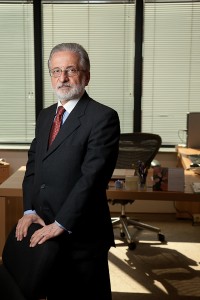End transgressions
The excellent receptivity that the book Culture of Transgressions - Scenarios of Tomorrow it has been receiving, both by the public and the press, it brings with it a matter of reflection to all those who are concerned with the healthy development of Brazilian society, whether from an economic point of view, or from a social point of view.
Culture of Transgressions, an expression coined by ETCO and the Fernando Henrique Cardoso Institute (iFHC), designates the set of ideas and attitudes that, as the name suggests, privileges the illicit as a way to obtain advantages, a concept that, unfortunately, is ingrained in Brazilian society. This culture places personal interest above collective interest and laws, and our job is to understand and combat tolerance with the transgressions historically existing in Brazil, not only those related to the business world, but, from a historical and sociological, to discover how this problem was born and developed in the country.
From the experience that I bring as ambassador of Brazil in countries with extremely diverse cultures, I regret to note that, although it exists worldwide, the corruption observed in Brazil today is quite high compared to organized, developed societies and with more mature political systems . What we Brazilians have to do is recognize our limitations and face our problems, as we have a long history of compromise with transgression, in the broadest sense of the word, whether it is the student who “cheats” on the school's work, or the incomprehensible, and increasingly violent, traffic violations. It is that old idea of taking advantage, which was crystallized at a certain moment in our society.
Nowadays, we are increasingly seeing how the problem of corruption is literally exploding in the face of Brazilian society, but, on the other hand, fortunately, provoking a healthy reaction from civil society. Brazilian society is evolving with economic development, with democracy, with the emergence of NGOs, with the investigative press, bringing to light stories of corruption and, more than that, with youth aware of these problems.
There is an internal evolution in society that is very healthy. It is clear that the changes will take time, as it is not possible to overcome a very ingrained culture overnight, but the process is ongoing and we will achieve good results.
It is up to ETCO, and organized civil society entities, to understand this moment and monitor this evolution. And this will not happen with a paternalistic attitude, believing us capable of changing society, but rather becoming partners, supporting good initiatives and using our ability to produce information that serves as tools to bring life to the fight against transgression in Brazil. Working hard is our greatest guarantee that one day the culture of transgressions will be forgotten and we will only have the culture of ethics in our country.
Roberto Abdenur is President of ETCO




